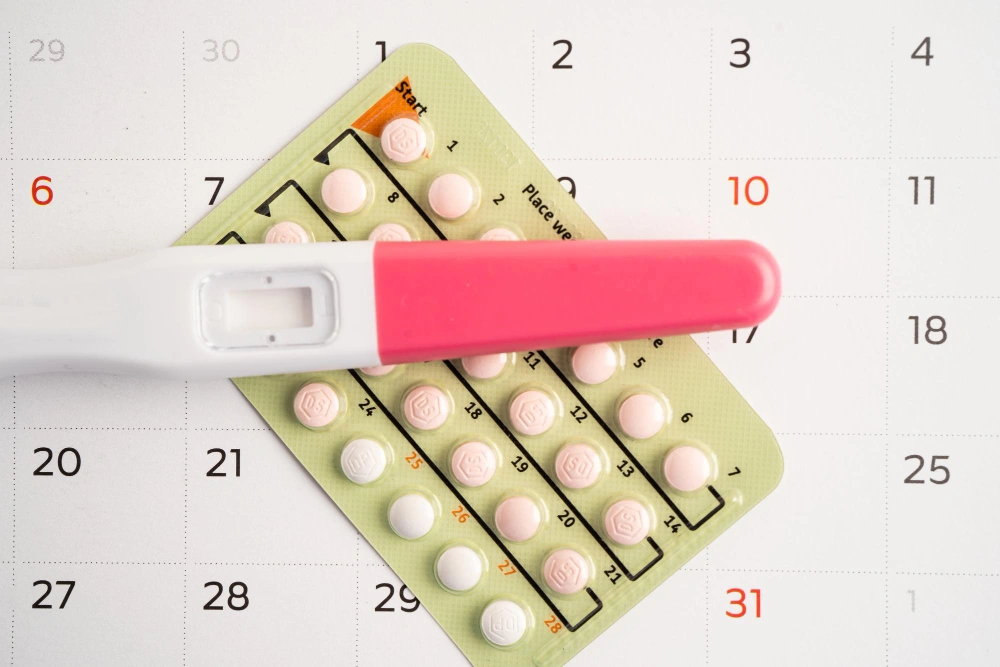Desogestrel Tablets: A Generic Version of Cerazette for Long-Term Contraception

Table of Contents
- Understanding Desogestrel and Cerazette
- How Desogestrel Tablets Work as Contraception
- The Benefits of Desogestrel for Long-Term Use
- Is Desogestrel Right for You?
- How to Take Desogestrel Tablets
- What to Expect When Starting Desogestrel
- Potential Side Effects and Considerations
- Comparing Desogestrel and Other Forms of Contraception
- Addressing Common Myths About the Mini Pill
- Supporting Your Contraceptive Choices with Desogestrel
Understanding Desogestrel and Cerazette
Desogestrel is a widely prescribed contraceptive pill known for being a generic version of Cerazette, a popular mini pill used for long-term contraception. As a progestogen-only pill (POP), Desogestrel offers an alternative to the combined oral contraceptive pill, particularly for women who are sensitive to oestrogen or have conditions that make oestrogen-based contraception unsuitable. This mini pill provides effective protection against pregnancy without the added risk associated with oestrogen-containing contraceptives.
Cerazette has long been a trusted name in the contraceptive world, but its generic counterpart, Desogestrel, offers the same level of effectiveness at a lower cost. For those looking to maintain consistent, long-term contraceptive cover, Desogestrel tablets offer an affordable and reliable solution. Services like PostMyMeds make it easy to access Desogestrel discreetly and conveniently, ensuring women have access to essential contraceptive options.
How Desogestrel Tablets Work as Contraception
Desogestrel works by preventing ovulation, the process in which an egg is released from the ovary. By inhibiting ovulation, it eliminates the chance of fertilisation occurring. Additionally, Desogestrel thickens the cervical mucus, which makes it difficult for sperm to enter the uterus and reach an egg. It also alters the lining of the womb, making it less likely for a fertilised egg to implant and develop.
Unlike combined oral contraceptives, which contain both oestrogen and progestogen, Desogestrel is a progestogen-only pill. This makes it a great option for women who are sensitive to oestrogen, breastfeeding, or unable to take oestrogen for other medical reasons. Desogestrel's unique mechanism ensures that it can offer effective contraception even without the hormone combination found in other contraceptive pills.
The Benefits of Desogestrel for Long-Term Use
Desogestrel tablets are particularly suited for long-term contraception due to their ease of use and minimal side effects for most women. Some of the main benefits include:
- Highly effective contraception: When taken correctly, Desogestrel offers over 99% effectiveness in preventing pregnancy, making it one of the most reliable forms of contraception available.
- No oestrogen-related risks: For women who experience side effects from oestrogen or have health concerns like migraines, high blood pressure, or a history of blood clots, Desogestrel provides a safer alternative without compromising on contraceptive protection.
- Breastfeeding-friendly: Since Desogestrel doesn’t affect milk production, it’s an excellent choice for new mothers who wish to continue breastfeeding while using a reliable form of contraception.
- Suitable for a wide range of women: Whether you're in your 20s or entering menopause, Desogestrel can be used for many years as a safe and effective contraceptive method.
Is Desogestrel Right for You?
Choosing the right contraceptive pill depends on various factors, including your medical history, lifestyle, and personal preferences. Desogestrel is often recommended for women who:
- Are unable to take oestrogen-based pills due to conditions such as high blood pressure, migraines, or a history of blood clots
- Are breastfeeding and want to avoid any impact on milk supply
- Prefer a low-hormone option that is still highly effective
- Are looking for a long-term contraceptive solution without the need for daily routine changes
However, like all medications, Desogestrel may not be suitable for everyone. It's important to discuss your medical history with a healthcare provider before starting any contraceptive pill to ensure that it’s the best option for your needs.
How to Take Desogestrel Tablets
One of the advantages of Desogestrel is its simple dosing regimen. Each pack of Desogestrel contains 28 active tablets, and you take one tablet at the same time each day without any breaks between packs. This continuous dosing helps maintain steady hormone levels in the body, providing consistent contraceptive cover.
It’s crucial to take Desogestrel at the same time every day to maximise its effectiveness. If you forget to take a pill or take it more than 12 hours late, the effectiveness may be reduced, and additional contraceptive precautions, such as using condoms, should be taken for the next two days.
If you're switching from another form of contraception to Desogestrel, follow your healthcare provider’s instructions carefully to ensure that you maintain full contraceptive protection during the transition.
What to Expect When Starting Desogestrel
When starting Desogestrel, it’s important to understand how your body might react during the first few months. Some women may experience side effects as their body adjusts to the new hormonal balance, while others may find the transition smooth with minimal issues.
Common initial side effects can include:
- Irregular bleeding: This is one of the most common side effects when starting Desogestrel, and it can range from light spotting to heavier, unpredictable periods. For most women, this irregularity stabilises after a few months.
- Breast tenderness or headaches: Some women report mild symptoms as their body adapts to the medication, though these typically subside after the initial adjustment period.
- No periods: Some women find that their periods stop altogether, which is a harmless effect of the pill for some users.
While side effects can be a concern, they are often temporary. If side effects persist or become unmanageable, it’s important to consult with a healthcare professional for advice on whether Desogestrel is still the best option for you.
Potential Side Effects and Considerations
Like all contraceptive methods, Desogestrel has potential side effects. These side effects are typically mild but can include:
- Headaches
- Breast tenderness
- Mood changes
- Acne
- Nausea
It’s worth noting that many women experience few or no side effects, but if any symptoms become troublesome, you should seek medical advice. It's also important to remember that Desogestrel doesn’t protect against sexually transmitted infections (STIs), so you may still need to use condoms if you're concerned about STI protection.
Comparing Desogestrel and Other Forms of Contraception
When considering long-term contraception, it’s helpful to compare Desogestrel with other available options:
- Combined oral contraceptive pills: These contain both oestrogen and progestogen, offering highly effective contraception but with some increased risk of blood clots and other side effects associated with oestrogen.
- Intrauterine devices (IUDs): IUDs offer long-term contraception without the need for daily pills, but they require insertion by a healthcare provider and may cause discomfort for some users.
- Implants or injections: These options provide long-term protection with less user input but may come with side effects such as weight gain or irregular bleeding.
Ultimately, Desogestrel is a convenient and effective option for those who prefer a simple, daily contraceptive that doesn’t involve oestrogen.
Addressing Common Myths About the Mini Pill
There are several myths surrounding the mini pill, particularly regarding its effectiveness compared to other forms of contraception. One common misconception is that the mini pill is less effective than combined pills, but when taken correctly, Desogestrel is over 99% effective at preventing pregnancy.
Another myth is that you must take it exactly at the same minute every day, but while it’s essential to take it within a consistent window, a delay of up to 12 hours is acceptable with Desogestrel, unlike other mini pills with stricter timeframes.
It’s also important to address the misconception that mini pills cause weight gain. Studies have shown that most women do not experience significant weight changes as a direct result of taking progestogen-only pills like Desogestrel.
Supporting Your Contraceptive Choices with Desogestrel
Choosing a contraceptive method is a highly personal decision, and it's important to find an option that suits your lifestyle, medical history, and long-term goals. Desogestrel provides an effective, low-hormone solution for women seeking long-term contraception without the added risks associated with oestrogen.
Whether you’re switching from another contraceptive method or starting birth control for the first time, Desogestrel offers the convenience and reliability that many women need to feel confident in their contraceptive choices. By understanding how to take the mini pill correctly and recognising the benefits and potential side effects, you can make informed decisions about your reproductive health and feel empowered in managing your contraception.











